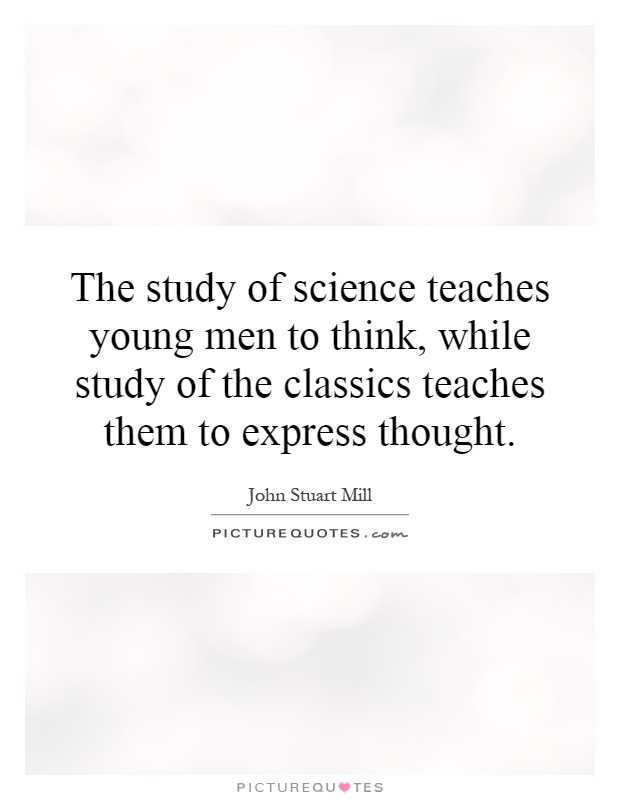The study of science teaches young men to think, while study of the classics teaches them to express thought

The study of science teaches young men to think, while study of the classics teaches them to express thought
John Stuart Mill, a prominent philosopher and political economist of the 19th century, believed in the importance of education in shaping the minds of young men. He argued that the study of science and the classics each played a crucial role in the development of a well-rounded individual. In his view, the study of science teaches young men to think critically and analytically, while the study of the classics teaches them to express their thoughts eloquently and persuasively.Mill believed that the study of science was essential for cultivating a logical and rational mind. By engaging with scientific principles and methods, young men learn to observe, question, and analyze the world around them. They develop the ability to think critically, to evaluate evidence, and to draw logical conclusions. This analytical approach to problem-solving is a valuable skill that can be applied to a wide range of disciplines and situations. By studying science, young men learn to think independently and to make informed decisions based on evidence and reason.
On the other hand, Mill also recognized the importance of the classics in shaping the intellectual and moral character of young men. The study of ancient literature, philosophy, and history provides a rich source of wisdom and insight into the human experience. By immersing themselves in the works of great thinkers and writers from the past, young men learn to appreciate the complexities of human nature, society, and culture. They develop a deeper understanding of the values and beliefs that have shaped civilization over the centuries.
Moreover, the study of the classics also helps young men to cultivate their powers of expression and communication. By reading and analyzing the works of masterful writers and orators, they learn to appreciate the beauty and power of language. They develop the ability to articulate their thoughts clearly and persuasively, to engage in meaningful dialogue with others, and to defend their ideas with eloquence and conviction.












 Friendship Quotes
Friendship Quotes Love Quotes
Love Quotes Life Quotes
Life Quotes Funny Quotes
Funny Quotes Motivational Quotes
Motivational Quotes Inspirational Quotes
Inspirational Quotes